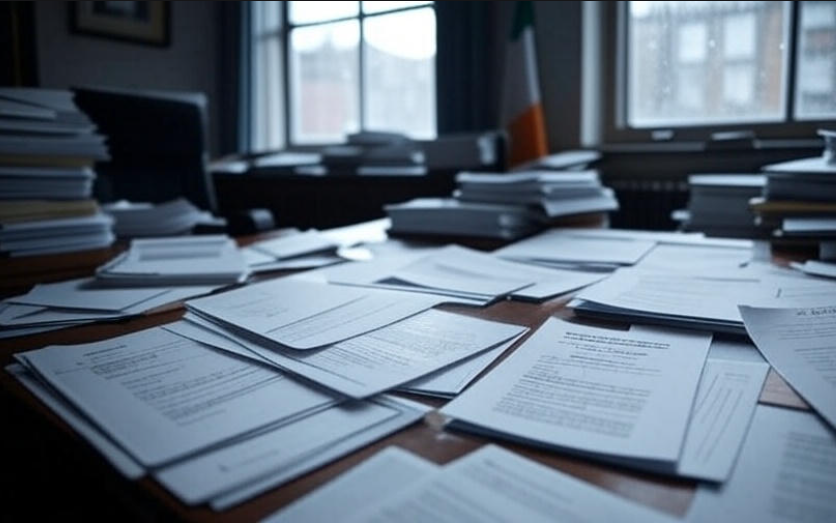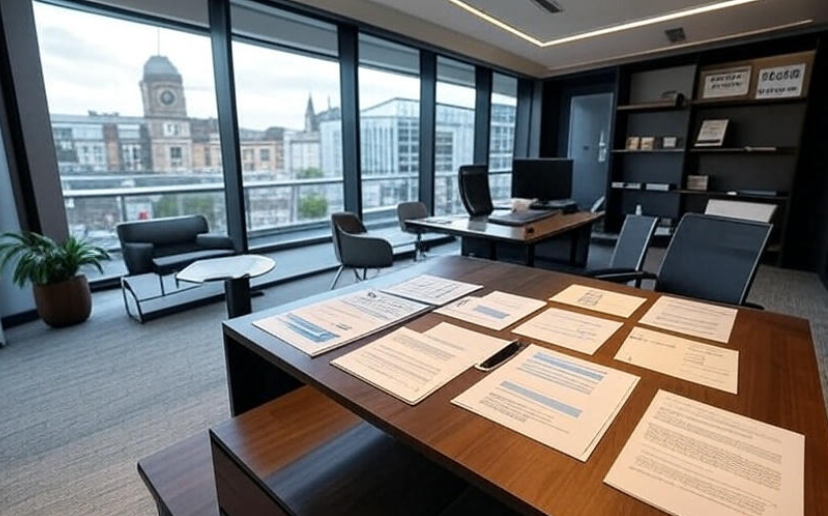Starting your career in a new country can feel exciting and a little overwhelming at the same time. Ireland is a great place to begin because it offers opportunities across many industries, from IT and healthcare to retail and hospitality. But the challenge most people face is this: how do you actually get your very first job in Ireland? Let’s go through it step by step in plain, human language.
Understanding the Irish Job Market
Before jumping into applications, it helps to understand how the Irish job market works. Ireland has two main types of jobs you can aim for:
-
Skilled jobs – These usually require qualifications or special skills (for example, nursing, IT, finance, or engineering).
-
Entry-level jobs – These don’t always ask for experience and are often in hospitality, retail, or seasonal work.
Ireland’s unemployment rate is relatively low compared to many other European countries, which is good news if you’re job hunting. But competition for the best roles can still be tough.
Making Sure You Have the Right Documents
Before you even apply, you need to make sure your paperwork is in order. Employers will usually ask for:
-
A valid work visa (if you’re not from the EU/EEA).
-
A Personal Public Service (PPS) number.
-
Bank account details (for salary payments).
-
Proof of address in Ireland.
Tip: You can apply for a PPS number as soon as you get an address in Ireland. Without it, you can still apply for jobs, but you’ll need it before you start working.
Writing a CV That Irish Employers Like
Your CV in Ireland should be short, clear, and tailored to the job. Most recruiters expect no more than 2 pages. Keep in mind:
-
Personal details: Just your name, phone, email, and address. No need to add a photo unless the job ad requests it.
-
Career summary: A few sentences about who you are and what you’re looking for.
-
Work experience: Even if you don’t have Irish experience, mention internships, volunteering, or part-time jobs.
-
Education: List your most recent qualifications first.
-
Skills: Highlight soft skills (teamwork, communication) and practical skills (IT, customer service, etc.).
Here’s a quick table to compare what a “bad” CV vs a “good” CV looks like:
| Bad CV ❌ | Good CV ✅ |
|---|---|
| Too long (4–5 pages) | Short and clear (1–2 pages) |
| Generic for every job | Tailored to each role |
| Includes unnecessary details | Focused on skills + experience |
| Hard to read layout | Clean, simple design |
Where to Look for Jobs in Ireland
Finding your first job means searching in the right places. Luckily, Ireland has both online and offline options:
-
Online job boards: Jobs.ie, Indeed.ie, IrishJobs.ie, and LinkedIn.
-
Recruitment agencies: CPL, Hays, Sigmar Recruitment.
-
Local notice boards: Cafes, shops, and supermarkets often put up “Help Wanted” signs.
-
Networking: Many jobs in Ireland are filled through referrals, so try to connect with people.
👉 Small tip: Don’t underestimate LinkedIn in Ireland. Many employers check profiles before calling someone for an interview.
Applying for Jobs Without Experience
It’s common to worry about not having Irish work experience. The good news is that many entry-level jobs don’t ask for it. You just need to show willingness to learn and a positive attitude.
Some good first jobs for newcomers include:
-
Retail assistant in supermarkets or shops.
-
Barista or waiter/waitress in cafes and restaurants.
-
Hotel staff (housekeeping, reception, kitchen help).
-
Customer service representative.
-
Seasonal farm or tourism work.
Tip: When applying, highlight transferable skills. For example, if you helped run events back home, that shows teamwork and organization even if the role was unpaid.
Preparing for Interviews in Ireland
Irish interviews are usually friendly but professional. Expect questions like:
-
“Tell me about yourself.”
-
“Why do you want to work here?”
-
“What skills do you bring to this role?”
Employers like candidates who are:
✔ Punctual
✔ Honest
✔ Clear in communication
Don’t be afraid to show personality, but always stay polite and professional.

Building Confidence as a First-Time Job Seeker
It’s normal to feel nervous when you’re new in Ireland. Confidence comes with preparation. A few simple habits can help:
-
Practice common interview answers with a friend.
-
Learn basic workplace etiquette in Ireland (like saying “thanks” often).
-
Be open to starting small – sometimes the first job isn’t your dream job, but it opens doors.
Networking Can Make a Huge Difference
In Ireland, people value personal recommendations. Sometimes jobs aren’t even advertised publicly. That’s why networking matters.
How to network naturally:
-
Attend community or career events.
-
Join local groups or clubs.
-
Connect with professionals on LinkedIn.
-
Don’t hesitate to tell people you’re job hunting – sometimes a casual chat leads to a job lead.
Common Mistakes First-Time Job Seekers Make
To save you time, here are some things to avoid:
-
Sending the same CV to every employer.
-
Applying only online and ignoring walk-in opportunities.
-
Not following up after interviews.
-
Waiting too long for the “perfect” job instead of starting with something smaller.
Quick Checklist Before You Apply
| Step | Done? |
|---|---|
| Do I have the right visa/PPS number? | ⬜ |
| Is my CV tailored to this role? | ⬜ |
| Have I practiced interview answers? | ⬜ |
| Do I have references ready? | ⬜ |
| Am I open to entry-level roles? | ⬜ |
Final Thoughts
Getting your first job in Ireland may not happen overnight, but it’s absolutely possible. Focus on small wins, build connections, and stay persistent. Remember, even a starter role can be the stepping stone to bigger opportunities. Once you have that first Irish job on your CV, future applications become much easier.
So take it one step at a time. Get your documents ready, polish your CV, apply widely, and don’t be afraid to start small. You’ll thank yourself later. 🌟
FAQs
Q1: Can I get a job in Ireland without experience?
Yes. Many employers in retail, hospitality, and seasonal sectors hire people with little or no experience, as long as you show enthusiasm.
Q2: How long does it usually take to get the first job?
It varies, but most newcomers find something within 1–3 months if they apply actively and stay flexible.
Q3: Do I need to speak Irish to work in Ireland?
No. English is the main language for work. Irish is taught in schools, but not required for most jobs.
Q4: Should I apply before moving to Ireland?
You can, but many employers prefer candidates already living in Ireland. Having an Irish address and phone number helps.
Q5: What if I only get part-time work at first?
That’s normal. Many people start part-time and later move into full-time roles once they prove themselves.




